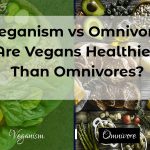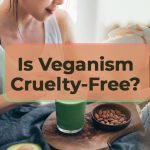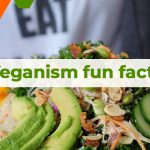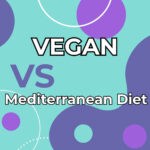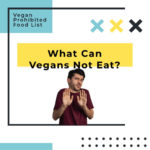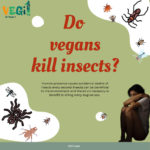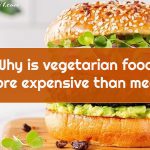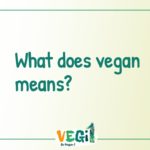Do Vegetarians Only Eat Vegetables?
Plant-Based Eating: A World of Choices
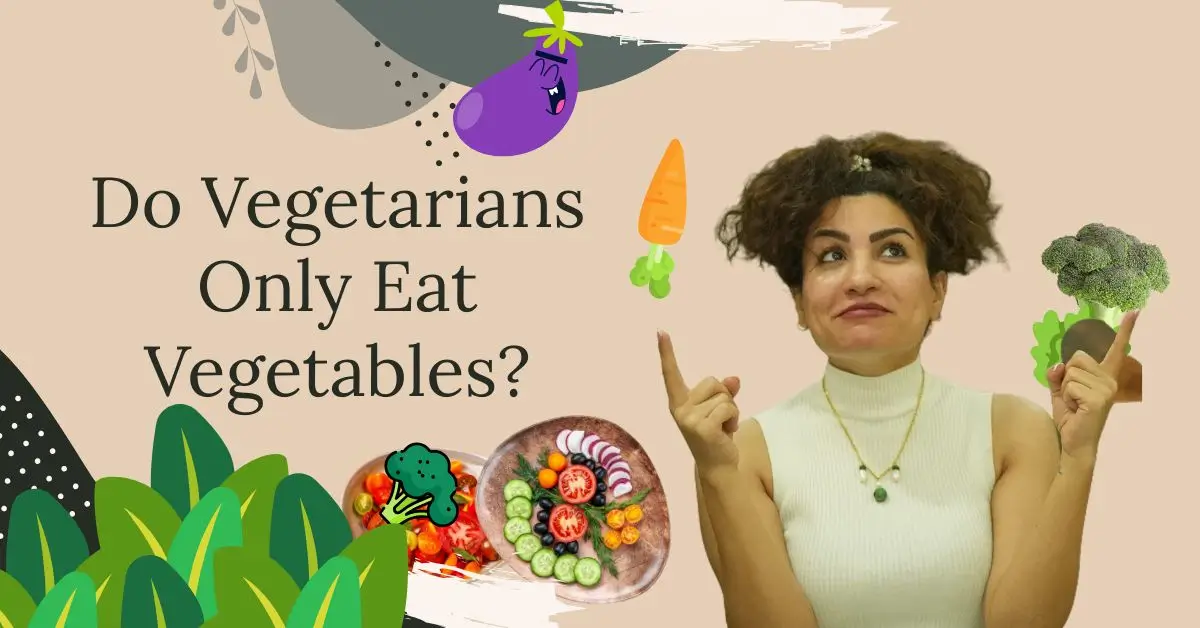
As you can assume from the name, a plant-based diet means that the diet is mainly based on plants.
But does that mean that everything that you can eat on that diet is just plants?
I’m vegan and the first question that people ask me right after I tell them I’m plant-based, is this:
“So you just eat salad?’
And I always tell them “NO”
I’m here to prove the fact that we have many different food choices in our diets and plant-based diets aren’t just made of plants.
Many people assume that people who follow plant-based diets only eat plants but that is completely wrong.
In this article, we are going to see if plant-based people only eat plants, and later on, we will talk about all plant-based diets and the benefits of following a plant-based diet.
In this article you will read:
Do Plant-Based People Only Eat Plants?
As I said in the introduction, this mindset is completely wrong because even if you are a vegan who can only eat plant-based foods, you still have a big diversity of colorful foods.
Some people think that when we say plants, we are talking about vegetables but even the vegan diet which has no animal product or animal meat is still complete.
In particular, vegans eat vegetables, legumes, nuts, seeds, whole grains, soy and its components (tofu, tempeh, and soy milk) and the list goes on.
However, people who follow other plant-based diets can eat foods that aren’t completely plant-based like vegetarians, and funny enough, some plant-based diets even have a moderate amount of meat or different animal products.
The most famous plant-based diets are:
Lacto-ovo is a diet that consists of dairy products and eggs besides plants.
Lacto-vegetarian diet is a diet that doesn’t contain meat and eggs, but consuming dairy products is allowed.
Ovo vegetarianism is a type of vegetarianism which you are allowed to eat eggs but you can’t eat dairy.
Last but not least, vegans. Vegans avoid all types of animal products and animal meat at all costs.
But that’s not our main point, we are here to talk about the different food choices that a plant-based person can have.
Given that, we are going to dive deep into the nutritional facts and health benefits of plant-based diets.
How Are Plant-Based Diets Complete?
We always stood up for the fact that plant-based diets are complete and well-balanced but what do we mean by that?
A well-balanced plant-based diet can be beneficial for everyone, and the good news is that plant-based diets do not destroy the environment like carnivore diets or even hurt animals.
Proper plant-based diets or meal plans that are written and designed by a nutritionist or a doctor are usually great because they contain all the essential minerals and vitamins followed by the necessary amount of different macronutrients.
Speaking of macronutrients in plant-based diets, the first thing that pops into people’s minds is protein.
A famous but wrong assumption that has been around for a long time was the lack of protein in plant-based diets which is false.
Throughout all of our articles, we always talked about this subject and we actually proved the fact that getting enough protein in plant-based diets is no longer a concern since there are many clean sources of plant-based protein in plant-based diets.
The best plant-based protein sources are tofu, tempeh, legumes, broccoli, nuts and seeds.
Many people have no idea that 100 grams of tempeh has over 19 grams of protein!
Later in the article, we will talk about other nutritious plant-based foods that are a better option for people compared to foods that are not plant-based and, we will also bring in authentic studies to show why plant-based alternatives are better.
Foods That Vegetarians Eat
Now it’s time to bring in the list of foods that vegetarians and other plant-based people eat.
#1 Fruits
Plant-based diets are always full of fruits, as you know, fruits are the cleanest sources of vitamins and minerals and of course, dietary fiber.
It is an accepted fact that fruits are rich in fiber and it has been proven that high-fiber foods help you feel full longer.
Mayo Clinic says:
“High-fiber foods not only provide volume but also take longer to digest, making you feel full longer on fewer calories.”
Fiber is also important for other reasons, fiber helps with blood sugar control, and cholesterol and it also reduces diabetes risk alongside better gut health.
Fiber is just one of the amazing health benefits of fruits.
Fruits are also packed with essential vitamins and minerals.
We will mention some fruits that plant-based people eat in order to stay healthy (just to get the essential vitamins and minerals).
Apples, bananas, berries, and oranges are the best fruits in terms of being nutritious.
#2 Vegetables
The health benefits of eating vegetables are endless!
First off, vegetables are rich in many important minerals like magnesium, zinc, phosphorous, and copper.
According to the WebMD website: Vegetables are a rich source of folate, a B vitamin that helps your body make new red blood cells. Folate is especially important for children’s health and may also reduce the risk of cancer and depression.
Plus, there are some other health benefits that the website has mentioned.
Better digestive health, lower blood pressure, lower risk of heart disease, and at last, diabetes control.
Studies have also shown that vegetables can improve mental health and gut health.
And the good news is that vegetables play a big role in plant-based diets.
#3 Nuts and Seeds
Nuts and seeds are a big part of plant-based diets and the best part about them is that you can have nuts and seeds in the form of butter or oil.
This means, you can get the macronutrients even if you don’t like to eat nuts by consuming the nut butter.
Just like fruits and vegetables, nuts and seeds are also high in fiber.
According to the British Heart Foundation, nuts are high in fat, it’s mainly healthier unsaturated fat. They contain protein, B vitamins, vitamin E, and minerals, including iron, potassium, selenium, magnesium, zinc, and copper.
So, as you can see, people can maintain their needed dietary fat intake by having nuts and seeds in their diets.
#4 Whole Grains
Right off the bat, we will show you what the Mayo Clinic said:
“Whole-grain foods are good choices for a nutritious diet. Whole grains provide fiber, vitamins, minerals, and other nutrients.
Whole-grain foods help control cholesterol levels, weight, and blood pressure. These foods also help lower the risk of diabetes, heart disease, and other conditions.”
The most common varieties of whole grains are oatmeal, popcorn, brown rice, and quinoa.
Whole grains are high in vitamins, minerals, protein, fiber, and antioxidants.
Whole grains also help with lowering the risk of heart disease, stroke, and type 2 diabetes.
#5 Soy-Based Foods
Most people underestimate soy-based products because they don’t have enough knowledge about them.
We can say that soy-based products are the best source of protein for people who are on a plant-based diet because they are rich in protein and they are completely plant-based.
Speaking of foods, the best and most common products that contain soy are soy milk, tofu, tempeh, and seitan.
Soybeans are a great source of protein and the best part about them is that they are very tasty.
Soybeans also have sodium, potassium, dietary fiber, magnesium, iron, and calcium, along with vitamin C and vitamin D.
#6 Plant-Based Supplements
As a vegan, I feel like plant-based supplements are the new wave now.
What I mean by that is that they are really clean and organic and they are sometimes even better than ordinary supplements.
We will talk about the fact that how some plant-based supplements are better later in the article but my actual point here is that the people who are on plant-based diets can meet their macro and micronutrient needs with supplements that are completely plant-based.
So, keep in mind that plant-based people have a lot of options on the table and even if they have a certain deficiency they can easily fix the problem by taking supplements that are plant-based.
Nowadays, the most popular plant-based supplements are plant-based protein powder and plant-based omega-3.
Plant-Based Sources of Vitamins and Minerals
Next up, we are here to talk about the best plant-based sources of vitamins and minerals that you can get from plant-based foods without taking supplements.
Although there is nothing wrong with dietary supplements, we wanted to show you that you can get these vitamins and minerals from real food.
Minerals
Vegetarians can get:
- Magnesium from green leafy vegetables, legumes, nuts, broccoli, and whole grains.
- Calcium from green leafy vegetables, seeds, tofu.
- Iron from green leafy vegetables, whole grains, legumes, seeds, watermelon.
- Potassium from bananas, avocados, tomatoes, strawberries.
- Copper from mushrooms, nuts, seeds, whole grains.
Vitamins
Vegetarians can also get these essential vitamins from the foods below.
They can get:
- Vitamin C from bell peppers, broccoli, tomatoes, strawberries, tomatoes, spinach, potatoes, melon, and berries.
- Vitamin E from green leafy vegetables, sunflower seeds, whole grains.
- Vitamin A from carrots, spinach, broccoli, red bell peppers.
Vitamin B3 Rich Foods Vegetarian
Vitamin B rich foods for vegetarians
64 Vitamin A Rich Foods for Vegetarians and vegans
Plant-Based Alternatives
Plant-based alternatives have always been popular even for people who are not plant-based.
However, some people do choose plant-based alternatives because they don’t want to consume animal products.
The list of plant-based alternatives is very long and because of that, we have to only mention the products that are really better than the animal-based products.
As I said before, Nowadays we even have plant-based supplements and that shows how thought-provoking the inventions are.
The alternative that plant-based people choose instead of real dairy products, especially milk is plant-based milk.
This is a list of different plant-based alternatives for milk:
Soy milk, almond milk, hazelnut milk, coconut milk, hemp milk, pumpkin seed milk, etc.
The other plant-based product we want to discuss is plant-based protein powder.
Plant-based protein powders are in such high demand that even non-vegans tend to buy them!
Since some people are lactose intolerant, they can’t consume whey protein powder and that just shows how popular and useful plant-based protein powders are.
People who are lactose intolerant also may buy plant-based milk or plant-based yogurt instead of normal milk since they can’t consume milk.
Plant-based milk has opened a way for vegans and other people to make plant-based versions of foods and snacks made with real milk.
With that being said, if you like cake and you are either vegan or lactose intolerant, you can make your cake without real milk and use soy milk or almond milk instead.
As previously mentioned, plant-based yogurt is also a great alternative to normal yogurt which is made from cow’s milk.
Vegan yogurt is usually made from soy, almonds, and cashews.
There are more plant-based alternatives that you may not have heard of.
Nowadays, companies produce non-dairy-based cheese, and vegan cheese is made from plant-based ingredients like soybeans, cashews, almonds, etc.
The most common types of vegan cheeses that are available in stores are cheddar, gouda, parmesan, mozzarella, and cream cheese which can be found in non-dairy forms.
Some vegans choose chickpea tofu, pumpkin seed tofu, or lentils tofu over cheese.
For meat, there have always been different plant-based alternatives.
In the case of nutritional value, sometimes plant-based have the same amount of nutrients as real meat.
Moreover, they are a much cleaner source of protein because they are plant-based.
The best meat alternatives for vegans are soy, mushrooms, legumes, and seitan.
Personally, I’ve been replacing meat with mushrooms and soy in the past few years and I can tell you that they are the best alternatives.
You can even make plant-based sausage with lentils and that’s easy.
The next plant-based alternative is for eggs, vegans use chia seeds or flaxseed powder to replace eggs.
Last but not least, a plant-based supplement that is way better than its animal-based version.
Plant-based Omega-3 supplement!
Most of you may think that you can only get omega-3 from fish and fish oil and that’s false.
You can have plant-based omega-3 supplements and they are safer than fish oil and other non-vegan omega-3 supplements because normal fish oil because they contain mercury.
Mercury is a toxic chemical that can damage your nervous system, kidneys, and liver.
Final Words
In this article, I tried my best to show you that plant-based means more than plants and plant-based people don’t just eat salads.
I also brought information from authentic websites and different studies to demonstrate how vegans and other plant-based people don’t face any challenges for being plant-based and they can have a wide variety of food choices so that they can meet their micronutrient needs without having deficiencies.
Plus, I talked about many different plant-based foods from every single aspect, either for being an alternative or being an important part of the diet.
In the end, I wanted to ask you for your opinion and also, I wanted to say that please share your experience with us if you have any tips for people who have doubts about plant-based diets.
Hope this article was useful to you.


